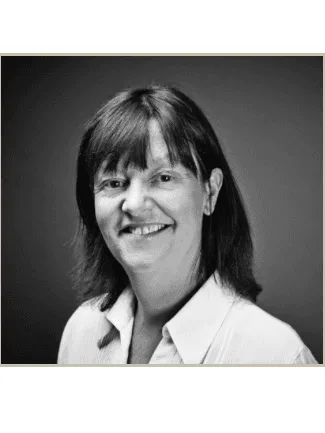
ALLi Director and Founder Orna Ross sums up the year in self-publishing and looks forward to what 2019 may bring
2018 was a big year for self-publishing. It's ten years since the launch of the Kindle, and many of today's most successful independent authors also launched their blogging and self-publishing careers a decade or so ago.
As I looked back over the year to do this self-publishing review of 2018, it seemed to me that this was the year that our community consolidated.
Three words kept coming to me: confidence, collaboration, and convergence.
In this post, I'll be highlighting the year's most significant trends for indie authors and also examining what is happening in the self-publishing services space.
Self-Publishing Review 2018: Indie Authors
Self-Publishing Review 2018: Author Confidence
In 2018, a sign of increased author confidence was the growing alignment between books and beyond-the-book communications and materials.
When ebook self-publishing took off at the beginning of this decade, the dysjunction between books and authors' websites was notable. For the vast majority of authors, there was little or no follow-through from book(s) into website, social media and the rest. In 2018, that changed for many.
In a book, voice is one of the hardest things to identify but it's unmistakable when it's there and the best books always have a strong, clear voice. It's the same in book marketing.
A clear authorial voice rises out of confidence: when you know what you're doing as a writer. Who you're serving, what you're saying to them and how you want to say it. We saw more and more authors gaining that confidence, getting that tonal differentiation right, allowing it to shine through every aspect of their communication, from their bio to their sign-up forms to their ads.
In 2018, we also saw better micro-niching, the key to author success today.
When digital self-publishing started, authors emulated what worked in traditional, physical publishing and bookselling.
In a physical store, every customer sees the same products and displays, and so the key to success is appealing as broadly as possible to the average reader. Hence the endless displays of bestselling romance and thriller writers and celebrity cookbooks in your local physical bookstore.
Online stores are different. They allow the purchasing experience to be personalized. This means each reader can be shown different products, different promotions, and different displays, depending on their personal preferences.
In 2018, thanks to the work of author educators like Mark Dawson, David Gaughran, Joanna Penn, Nick Stephenson, the Alliance of Independent Authors and others, a lot of authors stopped broad targeting and scattergun marketing.
They saw first-hand that it not only wastes time and money, it fails to secure email sign-ups and dilutes the marketing benefits gained by working with online partners like Amazon:
- Fewer readers finish your book. ebooks now make it possible to analyse a book's performance with readers, and DNFs, as they are known (Did Not Finish), reduces book and author ranking
- For the same reason, if you’ve written a series, you get less sell-through.
-
Your “also boughts” get scrambled, confusing online algorithms
Micro-niching is much better for the indie author, who is ideally placed to personalize, and 2018 was the year when a lot of authors began the work of building their own unique micro-niches, built on the foundations of their own unique experience and expertise.
2019 Opportunities: This has been the focus of ALLi's self-publishing 3.0 campaign which we launched in 2018. Indie author confidence is built by authors realizing that the day we sell our first book, we go into business. We can fight this (“I love writing but hate marketing”), or we can use it to become better at what we do, to find our readers, and to personalize our approach to them.
Self-Publishing Review 2018: Author Collaboration
2018 was also the year where author collaboration – supporting each other's marketing through mutual giveaways, cross-promotion in books and social media pages and newsletter swaps – really took off.
2019 Opportunities: Headline projects between digital influencers are common now and we’ll see authors, bloggers, and influencers continue to collaborate and leverage each other’s audience for mutual benefit. Who can you approach to partner with in this way?
Self-Publishing Review 2018: Authors: Convergence
As authors specialize and go micro-niche, we are seeing what The New Yorker calls the “genrefiction” of books and book culture.
For reasons that are highly debated (Kindle, Netflix or Wattpad? Social Media, digi-culture or Amazon categories? Postmodernism, realism revival or metaphysics?), it’s no longer accepted that to be important a book must break out of genre.
- Three genres in particular – YA (young adult), historical fiction and science fiction – are having massive influence on the wider literary culture.
- Literary fiction is no longer a thing apart but just another niche, another genre, one that is particularly attentive to language but not “better” than any other.
- And we’re seeing fiction increasingly engaging with visuals and audio and other forms of digital culture.
Cross-genre and cross-product book promotions are opening up. Writers are taking cue from other digital creativepreneur's physical retail partnerships, to place print and physical audio into well-chosen outlets.
Known as “special sales” in the book business, (also sometimes called non-bookstore or non-traditional sales marketing), the idea is to take your books to readers of your particular genre and type of book to where they buy, rather than waiting for them to find you online or in a bookstore.
“Special sales are not a separate way of doing business,” says Brian Judd of the Association of Special Sales. “It is not even a new way of doing business. It is an integral part of an overall marketing strategy, an extension of what you are probably already doing. If you are selling to bookstores now, you can sell to special markets without changing your habits or inventing new skills.”
2019 Opportunities: As the number of books coming online grows and grows, and self-publishers get better at targeting their micro-niche, new formats, special sales and transmedia collaboration become ever more effective. Who can you approach to partner with in this way?
Self-Publishing Review 2018: Self-Publishing Services
It's been a consolidation year for all the major self-publishing services too.
Kobo hooked up with Walmart in the US, iBooks became Apple Books and brought all book related activity, for all formats, into a single new Apple Book Store. Smashwords had an upgrade, PublishDrive offered a new subscription service, Draft2Digital got heavily into audio.
But it looks like the most impactful change this year, as usual, will have been brought to us by Amazon. (And I'm not talking about the switch from Createspace to KDP Print).
In September, Amazon rebranded all of their AMG, AMS, & AAP features under a new name called, “Amazon Advertising”.
What does this mean for authors? It's full impact has yet to be understood, but if you look at your “also boughts” today, (the row of books underneath your book description on Amazon, headlined with “Customers who bought this item also bought” ), above it you'll see a line of sponsored products.
For a few weeks late in 2018, those sponsored ads actually replaced the also-boughts, and Amazon has been doing a lot of playing around with this function over the past weeks and months. For a while, it looked like they might even be ditching the customer focus that has always made Amazon a level playing field for indies,
The Amazon store never ran on bought placement, but on giving the consumers what they wanted at the best possible price. For authors that meant determining what kind of books your readers are are most likely to purchase, so that it can display more of them.
Revenue from Amazon’s ad sales is expected to jump $28.4 billion over the next five years (Cowen & Co), more than the combined increases in ad revenue for all television networks globally (GroupM). This year it doubled.
What does the company's reinvention as an advertising giant mean for authors? The full ramifications are yet to be seen, but it seems clear that advertising has already become more essential to getting traction in Amazon.
Opportunities: It's looking like the ideal advertising strategy is to use Facebook, Google etc. to bring readers to your own website store and Amazon ads for the Amazon store. As the consumer gets used to buying online, having your own e-commerce website becomes ever more important. As does “going wide”, selling your books in multiple formats in multiple places, with your own website at the heart of your publishing ecosystem.
Self-Publishing Review 2018: Conclusion
This most significant change in the author community relates back to those three trends of convergence, collaboration and confidence.
Confidence most of all. The author community is very savvy, and we have come so far in just one decade, since digital self-publishing started.
What doesn't change, year after year since Gutenberg, is the three things an author always needs to do to see success:
- reach our ideal readers
- package our books in a way that excites them
- give them what they want or need to read, so they come back for more
That's the hard work that nobody else can do for us, and that will continue into 2019 and beyond.






Thanks for the advice, Orna!
I like the fact that cross-promotion and collaboration can be so effective. But doesn’t it require some measure of success for the writer already? It is not so easy if one has a small email list or limited network at present to get a deal started or another writer interested in a matchup. But it sure sounds like something to aim for.
Excellent look back at Self-Publishing Orna Ross. Look out here we come 2019!
Yeah, good summation, Orna.
I think we have to be wary of Amazon, not to be entirely trusting that it has our best interests at heart (it doesn’t), like any industrial oligarch-in-the-making, but worth working with,
Thanks Richard. I agree. No other business has our best interests at heart. That’s our job! 🙂 They look after their business, we must look after ours. Thank you for being part of the ALLi journey in 2018. Happy New Year!
Excellent summary of affairs.
Thank you Karen, and thank you most of all for all your fabulous contributions to the ALLi community in 2018, again. Looking forward to what 2019 will bring. Happy New Year!